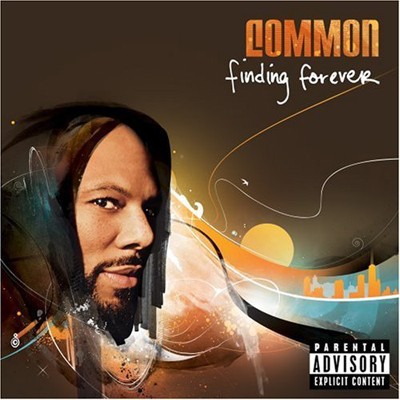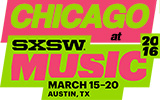| « Throw A Kit On That, Get Caked...Holla!! | Pearl Jam's anti-Bush lyrics slashed from stream » |
Feature Thu Aug 09 2007
This ain't Be. Not Electric Circus. Can I Borrow A Dollar? Please.
It's really difficult to let old styles go. We expect our musicians to give us the same as last time, but get angry when they've deviated "too far" and antagonistic if they don't show growth by differing since the last time. Deep down, we want a return to the glory of what was before, or a departure from the past if its residuals taste like crap years later.

Common's been left, right, front and back again; seven albums released by a major label is admirable in this day and age, and testament to his longevity. At this point, it's not about what he's done, but how he's done it and where he is growing as an artist. Over fifteen years, he's seemingly laid out as complex a persona as exists in hip-hop. He's done joints for the car and the classroom. He's been barbershop AND boutique, to borrow a phrase, and been more emotional than most artists would dare to be while maintaining the cred that has lesser lyricists claiming to be miniature Tony Montanas to compete.
What you expect of Lonnie Rashid Lynn at this stage is ultimately how you're going to feel about Finding Forever.
Executive produced by Kanye West, with special appearances from Ye, Lily Allen, Will.I.Am, Bilal, and D'Angelo, Finding Forever is a cliche. It really is. He's done so much to make everyone happy that the album, while put together cohesively, doesn't have the single-mindedness of his other albums.
Hell, I'd be tired of getting pulled in eighty different directions too: the old schoolers who still spin Resurrection want battle lyrics. The people who want to play the album at work want the accessibility of Be. Chicagoans still unsure of his allegiances want hometown anthems a la "Reminding Me of Sef". People sick of the ongoing Fiddyization of hip-hop want a "Come Close". And over twelve tracks, everyone gets something for their trouble.
The guests don't add a lot to any of the songs they're on, although D'Angelo's first appearance on a commercial effort since Voodoo is a welcome surprise. Actually I misspeak; Pops makes his return to close out the album as is his tradition, but another guest decides to rhyme a bit (and sing horribly) when he's called up to the microphone; our good friend Kanye on the Chicago shoutout track "Southside." For beat-heads, there is not a single crappy, half-assed beat on the album, but even if Kanye can't sing worth a damn, he continues to have an ear for sonics that compliment the artist's mood and flow.

The standout on this album is "Misunderstood," which features the best Nina Simone sample use to date, as Com weaves three stories of people who aren't going the right way but want the chance to do better.
This is a rather odd album, in the way that everyone will probably love one or two songs, find some others pretty decent, and be able to play through the entire thing without forming an overly negative opinion about the rest of it. The current singles, The Game and The People are outstanding in their own ways, a testament to how Common is able to do two different things two different ways and still deliver the lyrics, similes, and delivery we've come to expect from C-O-doubleM-O-to the N. A lot of the early criticism of Common and the album focuses on this album in the context of his past efforts, his New York residence and "questionable" Chicago allegiance, his "boho" hat line, and his appearance in a Gap commercial, among other things. Common as an artist can't answer so many criticisms in twelve tracks, but he's put out quality hip-hop with his latest offering, and it stands with the rest of his catalog as solid hip-hop music.
-Troy Hunter















